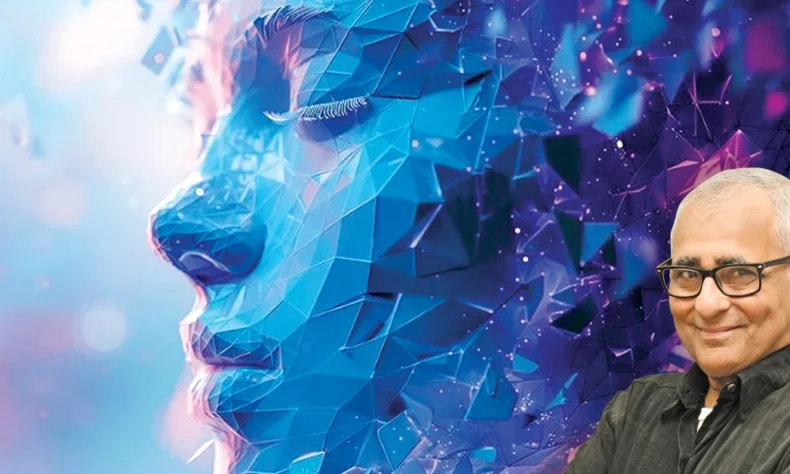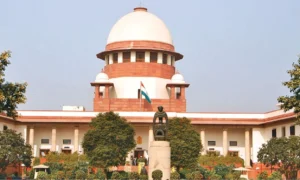
By Inderjit Badhwar
Every generation has a technology that unsettles the way we see the world. The printing press democratized information, but also spread propaganda. Television reshaped politics, turning leaders into performers. Social media empowered the voiceless, but also created echo chambers of distortion. Today, Artificial Intelligence (AI)—and more specifically, deepfake technology—has arrived at the intersection of cinema, celebrity, and law, raising questions that will define not just the future of Bollywood, but also the future of trust itself.
This week’s cover story, written by Dilip Bobb, takes us into the shimmering, but shadowy world of AI-generated deepfakes in Indian cinema. Bollywood has always thrived on illusion—the larger-than-life hero, the timeless heroine, the dance sequences that defy gravity and reason. But what happens when illusion is no longer confined to screenplays or camera tricks, when technology can conjure a star’s likeness, voice, and gestures without their consent? What happens when an actor’s very identity becomes a commodity, endlessly replicable with a few clicks of code?
The story is not a distant sci-fi scenario—it is unfolding now. From unauthorized celebrity face-swaps to synthetic promotional clips, the tools that once required Hollywood-level budgets are available on a smartphone. This democratization of fakery brings both opportunity and peril. On one hand, filmmakers dream of resurrecting bygone legends or reducing the physical demands on actors. On the other, the same technology fuels a dark economy of non-consensual pornography, political propaganda, and fraudulent endorsements. For a country where cinema is more than entertainment—where stars are icons, role models, even deities—the stakes could not be higher.
The legal landscape, both in India and globally, is scrambling to catch up. Existing copyright and privacy laws were not built for a world where your face can be stolen and your voice fabricated. In the United States, ongoing debates pit free speech protections against the right to one’s image. In Europe, regulators lean towards treating deepfakes as a matter of digital integrity and consumer trust. India, with its unique cultural attachment to cinema, has been slower to respond, but pressure is mounting. Should deepfake creation without consent be a criminal offense? Should studios own the digital likeness of actors under contract? How do we balance creative freedom with human dignity?
The answers are not easy, but the urgency is clear. Bollywood, often accused of being late to technological revolutions, cannot afford to treat this as just another fad. Already, international studios are signing contracts where actors sell not just their performances, but their digital doubles. The danger is that Indian cinema might enter this frontier unprepared, leaving its stars, and its audience, vulnerable.
But there is also a wider lesson. Deepfakes are not just a Bollywood story; they are a human story. They force us to confront what authenticity means in an era when sight and sound can no longer be trusted. When a video clip can topple reputations, sway elections, or ignite communal tension, the social fabric itself is at risk. If cinema is the mirror of society, deepfakes show us a cracked reflection—seductive, dangerous, and profoundly destabilizing.
At the same time, technology is not destiny. Just as cinema evolved from silent films to talkies to digital streaming, so too can it find ethical ways to harness AI. Imagine archival footage restored with precision, lost voices of history brought back, or actors freed from the grind of reshoots by their digital avatars. The key lies in consent, regulation, and awareness. As audiences, we must learn to ask harder questions about what we see. As lawmakers, we must craft sharper tools to punish misuse. And as journalists, we must shine a light on the implications before the illusions overwhelm the truth.
Bollywood has always been India’s dream machine. The danger is that, in chasing those dreams through AI, it might wake us into a nightmare where reality itself becomes negotiable. That is why this cover story matters—not just to film buffs or legal scholars, but to every citizen navigating an AI-driven world.
The reel and the real are colliding. How we choose to separate them—or reconcile them—will define not just cinema’s future, but the future of truth itself.
📰 Crime Today News is proudly sponsored by DRYFRUIT & CO – A Brand by eFabby Global LLC
Design & Developed by Yes Mom Hosting






